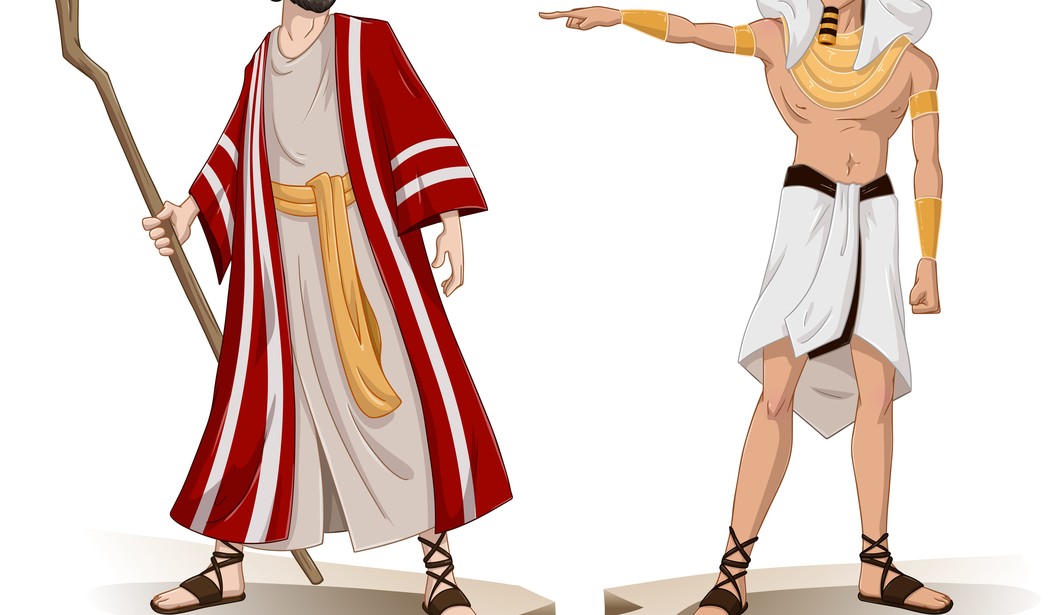Continuing a plan to get through the entire Bible in a year, follow as I journal through the reading. I have chosen a straightforward approach that begins in Genesis and ends in Revelation. This will not be an in-depth study or a comprehensive commentary. There are plenty of sources for such material. This is stage one Bible reading, taking the text at face value and sharing impressions.
Today’s reading comes from the book of Exodus, chapters 4 through 6, detailing how believers and unbelievers alike defy God in turn. Some impressions from the text:
- Consider this. God gives Moses three incredible miraculous signs to act as credentials to the Israelites. His staff can turn into a snake and back into a staff again. His hand can become leprous and then be restored. And he can pour out water from the Nile and have it become blood on the ground. How does Moses respond to being granted these miraculous signs? “Oh, my Lord, I am not eloquent, either in the past or since you have spoken to your servant, but I am slow of speech and of tongue.” Yeah, yeah, that’s nice, Lord. But I don’t speak good. It’s pretty ridiculous, isn’t it? A God who can work such wonders can’t overcome speech difficulties? But we shouldn’t be too hard on Moses. We often doubt God in similar ways.
- I love God’s response here: “Who has made man’s mouth? Who makes him mute, or deaf, or seeing, or blind? Is it not I, the Lord? Now therefore go, and I will be with your mouth and teach you what you shall speak.” It’s almost sassy. There’s a touch of sarcasm to it. This is a father dealing with a child.
- When Moses continues to object to being sent, God becomes exasperated. The text says, “the anger of the Lord was kindled against Moses.” Yet He was merciful and provided Aaron as an assistant for Moses.
- “And the Lord said to Moses, ‘When you go back to Egypt, see that you do before Pharaoh all the miracles that I have put in your power. But I will harden his heart, so that he will not let the people go.'” As noted during the account of the burning bush, this commission is astounding. Go charging into the court of the most powerful man on Earth and tell him what to do as if you have such authority. Oh, and by the way, he’s going to react exactly as you might expect him to. We face a similar commission today. We are to reach people with the gospel. Yet we know ahead of time that the vast majority will not welcome it.
- Confronted with God’s command, Pharaoh responds, “Who is the Lord, that I should obey his voice and let Israel go? I do not know the Lord, and moreover, I will not let Israel go.” This might as well be the epitaph on the gravestone of every unbeliever. Who is the Lord, that I should obey his voice? That’s the question above all questions. That’s the key to our purpose in life. That’s the thesis statement of the entire Bible.
- The response to Pharaoh’s decree that the Israelite slaves make their quota of bricks without straw proves illustrative of how we tend to view our situation through a myopic human lens. Pharaoh was motivated by two things, a desire to spite Moses and Moses’ god, and a desire to turn Moses’ people against him. The reaction of the Israelites is predictable. They blame Moses. What’s more noteworthy is how Moses himself responds. “O Lord, why have you done evil to this people? Why did you ever send me? For since I came to Pharaoh to speak in your name, he has done evil to this people, and you have not delivered your people at all.” Everything is proceeding exactly as God said it would, yet Moses stands surprised? So it is with us today. We have been told that the Christian life is one of persecution and strife. Yet many wonder why God has not delivered more prosperity and comfort.
Return soon as we continue our year-long journey through the text of the Bible.
Catch up on the previous entries:
Archived Genesis posts (scroll down in link).
Moses gets a mission from God. – Exodus 1-3









Join the conversation as a VIP Member